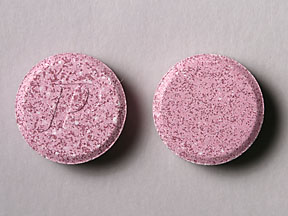Pepcid Complete Interactions
There are 529 drugs known to interact with Pepcid Complete (calcium carbonate/famotidine/magnesium hydroxide), along with 10 disease interactions, and 2 alcohol/food interactions. Of the total drug interactions, 22 are major, 424 are moderate, and 83 are minor.
- View all 529 medications that may interact with Pepcid Complete
- View Pepcid Complete alcohol/food interactions (2)
- View Pepcid Complete disease interactions (10)
Most frequently checked interactions
View interaction reports for Pepcid Complete (calcium carbonate / famotidine / magnesium hydroxide) and the medicines listed below.
- acetaminophen
- albuterol
- amlodipine
- aspirin
- atorvastatin
- Benadryl (diphenhydramine)
- Claritin (loratadine)
- CoQ10 (ubiquinone)
- cyclobenzaprine
- doxycycline
- famotidine
- Flonase (fluticasone nasal)
- gabapentin
- ibuprofen
- levothyroxine
- lisinopril
- losartan
- melatonin
- metformin
- MiraLAX (polyethylene glycol 3350)
- omeprazole
- pantoprazole
- prednisone
- tramadol
- trazodone
- Tylenol (acetaminophen)
- Vitamin B12 (cyanocobalamin)
- Vitamin C (ascorbic acid)
- Vitamin D3 (cholecalciferol)
- Zyrtec (cetirizine)
Pepcid Complete alcohol/food interactions
There are 2 alcohol/food interactions with Pepcid Complete (calcium carbonate / famotidine / magnesium hydroxide).
Pepcid Complete disease interactions
There are 10 disease interactions with Pepcid Complete (calcium carbonate / famotidine / magnesium hydroxide) which include:
- phosphate calcifications
- cardiac contraction/conduction
- malabsorption
- renal dysfunction
- sarcoidosis
- GI bleeding
- inflammatory bowel disease
- intestinal obstruction disorders
- renal dysfunction
- renal dysfunction
More about Pepcid Complete (calcium carbonate / famotidine / magnesium hydroxide)
- Pepcid Complete consumer information
- Compare alternatives
- Reviews (7)
- Drug images
- Latest FDA alerts (1)
- Side effects
- Dosage information
- During pregnancy
- Drug class: H2 antagonists
- En español
Related treatment guides
Drug Interaction Classification
| Highly clinically significant. Avoid combinations; the risk of the interaction outweighs the benefit. | |
| Moderately clinically significant. Usually avoid combinations; use it only under special circumstances. | |
| Minimally clinically significant. Minimize risk; assess risk and consider an alternative drug, take steps to circumvent the interaction risk and/or institute a monitoring plan. | |
| No interaction information available. |
See also:
Further information
Always consult your healthcare provider to ensure the information displayed on this page applies to your personal circumstances.


